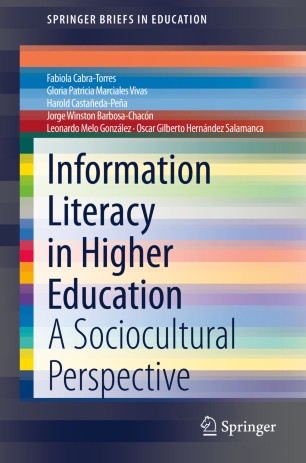

Most ebook files are in PDF format, so you can easily read them using various software such as Foxit Reader or directly on the Google Chrome browser.
Some ebook files are released by publishers in other formats such as .awz, .mobi, .epub, .fb2, etc. You may need to install specific software to read these formats on mobile/PC, such as Calibre.
Please read the tutorial at this link: https://ebookbell.com/faq
We offer FREE conversion to the popular formats you request; however, this may take some time. Therefore, right after payment, please email us, and we will try to provide the service as quickly as possible.
For some exceptional file formats or broken links (if any), please refrain from opening any disputes. Instead, email us first, and we will try to assist within a maximum of 6 hours.
EbookBell Team

4.7
56 reviewsThis book presents an innovative theoretical and methodological approach to study information literacy in higher education contexts. While mainstream studies tend to see information literacy as a technical and universal process, this book proposes a theoretical and methodological framework to study information literacy from a sociocultural perspective, highlighting the importance of the social and cultural contexts in which information literacy develops.
This situated approach demands that research data must be analysed in relation to the contexts in which they emerge, so the book proposes a research method based on the study of personal histories and stories, learning situations and intersubjective relationships to characterize the different information profiles of different information users.
Adopting a multidisciplinary approach that combines contributions from educational research, psychology and information sciences, the authors first present a theoretical discussion to argue in favor of the sociocultural paradigm to study information literacy, then present their methodological proposal to observe informational competencies among higher education students, and finally present the results of an empirical study to identify different information literacy profiles among Latin American students and teachers.
Breaking with the hegemonic paradigm in the field, Information Literacy in Higher Education – A Sociocultural Perspective provides useful and innovative tools to researchers working in different areas of the social sciences, such as education, psychology, linguistics and information sciences.